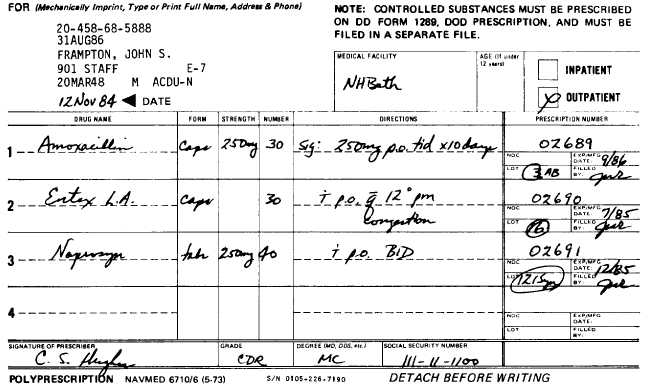physicians employed by the Navy, and independent duty Hospital Corps personnel. Qualified military nurse practitioners and military physician’s assistants may write prescriptions when authorized in writing by the commanding officer. Prescriptions written by civilian prescribers for eligible beneficiaries are allowed, but medical and dental students prior to internship are not allowed to write prescriptions for substances listed in schedules II and III.
With the exception of the polyprescription, prescriptions will be limited to one item per prescription. (It goes without saying that it will also be restricted to one patient.) Avoid the use of brand names of drugs and medical stores in prescription writing. Whenever possible, use generic names.
The quantity of the drug prescribed will be a reasonable amount needed for the patient. Excessive or unrealistic quantities will not be prescribed. Erasures are prohibited, and interlineations must be initialed.
And remember, persons authorized to prescribe drugs cannot write prescriptions for themselves or members of their immediate families.

Figure 4-2.-Polyprescription.
FILLING THE PRESCRIPTION
When you, as the compounder in the pharmacy, receive a prescription for filling, you should follow certain basic steps to make sure that the right patient gets the right medicine in the right amount in the right way. There are no shortcuts—in pharmacy things are done right or not at all!
VERIFICATION
First of all, satisfy yourself that the prescription you have received is a bonafide one and that the person you have received it from is in fact entitled to having it filled by your pharmacy. You don’t need to be tedious about verification— the simplest and best way is to ask for an ID card. Verify the date on the ID card. 4-3
